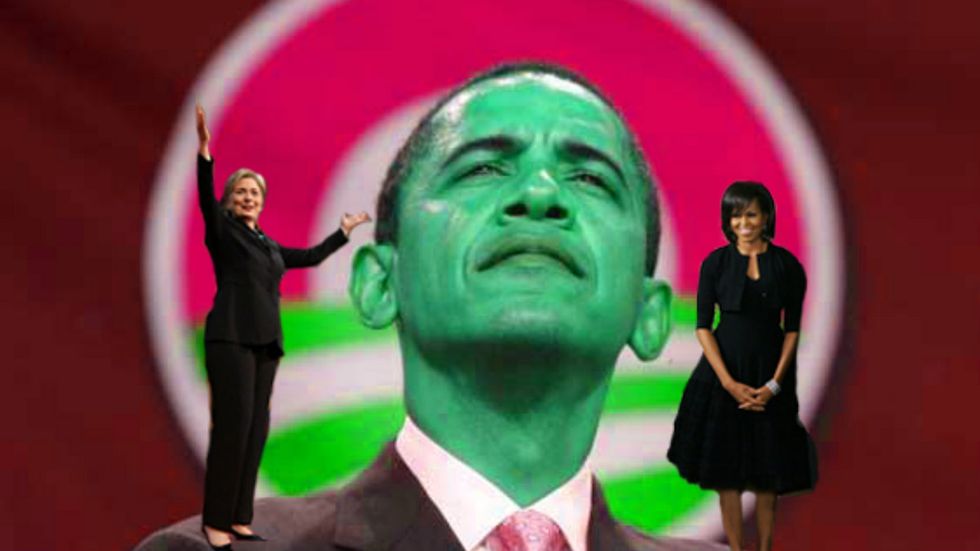
© 2024 Blaze Media LLC. All rights reserved.
The U.S. military generals tasked with countering the rapidly expanding caliphatist theocracy in Tehran not only have no plan to stop their advance, they also stand by Barack Obama’s Iran deal, betraying the current president’s mandate to fight back against the Iranian regime.
These generals are quite sympathetic to the disastrous Iran nuclear deal, and they also seemingly have no issue with the Obama-initiated Middle East realignment, which hands over much of the region into the influence sphere of Iran.
Iran continues to threaten the entire Middle East, as the regime expands westward with its Islamic Revolutionary Guard Corps (IRGC), Shiite militiamen, and Hezbollah militants. Iran has also successfully built an unchecked, functioning land and air corridor through Tehran, Damascus, and southern Lebanon.
There are now Iranian soldiers stationed on the Israel-Golan Heights border, and they’ve committed a massive military force to the border of Iraq’s autonomous Kurdistan region. Not only that, Iran has essentially taken over the government of Iraq, and has committed to a plan that seeks the violent overthrow of American allies in the Gulf.
With all of the threats that Iran poses to regional stability — a region where U.S. assets continue to be heavily engaged — one would assume that our top Cabinet generals are readying plans to combat its aggression.
Shockingly, the people tasked with stopping Iran’s rapid expansion admit that they have yet to craft a plan to stop the world’s foremost state sponsor of terrorism. Controversial national security adviser H.R. McMaster — who remains intimately close with the leftist Center for a New American Security think tank — admitted as much last week when he was unable to articulate to his lecture’s audience what the administration’s objectives are when it comes to pushing back against Iran.
Secretary of Defense James Mattis has talked tough on Iran, but has not committed to any known strategic or tactical changes in countering Iran and Iran-backed operators on the battlefield. In fact, Mattis and McMaster have privately told the president that they oppose allowing U.S. commanders in Syria and Iraq to fight back against Iran’s provocations.
And these same generals stick to the status quo on the Iran nuclear deal, even as the accord continues to empower Iran with the cash and resources to bolster international terrorist organizations.
Before a Senate hearing Tuesday, Defense Secretary Mattis and Joint Chiefs Chairman Gen. Joseph Dunford — two men who held prominent posts in the Obama administration — proclaimed that they were supporters of the Iran deal. They’ve also claimed that Iran is fully compliant with the deal, even though verification mechanisms have been essentially blocked and deactivated. McMaster privately supports the deal, too, but has now adjusted his language and supports its reform.
At what point in time does President Trump have to step in and demand that his generals follow the national security mandate he was elected upon? The ultimate test comes Oct. 15, when the president will have to decide whether to extend or end the nuclear deal.
These generals may be serving under a new president, but they remain ideologically connected to the Obama administration's appeasement-minded foreign policy.
Want to leave a tip?
We answer to you. Help keep our content free of advertisers and big tech censorship by leaving a tip today.
Want to join the conversation?
Already a subscriber?
more stories
Sign up for the Blaze newsletter
By signing up, you agree to our Privacy Policy and Terms of Use, and agree to receive content that may sometimes include advertisements. You may opt out at any time.
© 2024 Blaze Media LLC. All rights reserved.
Get the stories that matter most delivered directly to your inbox.
By signing up, you agree to our Privacy Policy and Terms of Use, and agree to receive content that may sometimes include advertisements. You may opt out at any time.